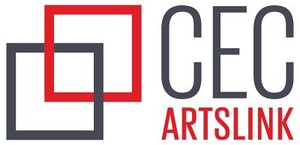November 1–19, 2021
CEC ArtsLink is pleased to announce ArtsLink Assembly 2021: Future Fellows, a virtual convening on transnational cultural exchange, civil society, and the role artists can play in building a better world. The Future Fellows are ten artists, activists, and thinkers who were each commissioned to create a manifesto that summarizes how they engage with local communities and each other to explore new ways of working, reimagining support structures and the arts economy to effect social change and become more self-sustaining post-pandemic. The artist manifestos are shared online and unpacked through dialogue, moderated discussions, and podcasts published on the CEC ArtsLink website, November 1–19, 2021. For more information, visit here. Register for livestreams and find out more about each event here.
Friday, November 19 (EDT)
10–11:30am: Recorded video stream of Future Fellows in conversation, moderated by Megha Ralapati from Hyde Park Art Center, Chicago.
12–2pm: Livestream with live questions and comments. ArtsLink International Fellows discuss with Kendal Henry the Future Fellows’ manifestos in relation to their own work and practices.
3:30–5pm: RESPONSE ABILITY* in partnership with Vera List Center. Livestream with live questions and comments. The Argentinian collective Etcétera presents a manifesto about ecocide, as part of the second chapter of NEO-EXTRA-ACTIVISM, Protocols of Buen Vivir, their project for the 2020–2022 Boris Lurie Vera List Center fellowship.
Building on last year’s theme of resilience and community-building, ArtsLink Assembly 2021 examines how artists are establishing vital networks to extend their practices and propose a new arts ecology for the twenty-first century beyond existing arts infrastructures. Future Fellows selected to speak at this year’s ArtsLink Assembly are: Rusanda Curca (Moldova), Fatin Farhat (Palestine), Cannupa Hanska Luger (Santa Fe, New Mexico, USA), Qondiswa James (South Africa), Selma Banich (Croatia), Ambrose Idemudiah (Nigeria), Leyli Gafarova (Azerbaijan), Elena Ishchenko (Russia), artist duo Marat Raiymkulov and Malika Umarova (Kyrgyzstan), and Amirah Sackett (Chicago, Illinois, USA).
Each Future Fellow takes a unique approach to their manifesto, engaging with a range of topics and mediums. Cannupa Hanska Luger’s multidisciplinary social practice interweaves performance and political action to tell stories about twenty-first century indigeneity; his manifesto on Native American Futurism takes the form of a film shot at the Experimental Media and Performing Arts Center (EMPAC) in New York State. Qondiswa James examines socio-political issues as they relate to Cape Town, with an emphasis on using theater and performance arts in her work to mobilize transgression; her manifesto focuses on strengthening both independent practice and community engagement. Amirah Sackett is widely recognized as a hip-hop dancer, choreographer, and teacher, whose work reflects her Muslim American identity; her manifesto centers around empowering women through hip-hop networks and community.
A moderated conversation between the Future Fellows and Megha Ralapati, Residency and Special Projects Manager at Hyde Park Art Center in Chicago, will be posted online November 17 and available for streaming through the end of the ArtsLink Assembly on November 19. Also taking place on November 19 is a discussion moderated by Kendal Henry, Assistant Commissioner, Public Art, NYC Department of Cultural Affairs, and ArtsLink International Fellows who will consider the Future Fellows’ manifestos in relation to their own practices.
Through the ArtsLink Assembly, CEC ArtsLink continues its mission to promote transnational exchange, openness, and cultural understanding, building a sense of community and camaraderie amongst those who share the concerns of the contemporary art world. Past Assemblies have welcomed curators, philanthropists, and culture workers as well as attendees and speakers from MoMA, Lambent Foundation, The Pew Center for Arts & Heritage, Open Society Foundations, Nars Foundation, Rockefeller Foundation, Center for Artistic Activism, Institute of International Education, PEN Artists at Risk Connection, and Democracy Now! In 2020, over 2,000 people in 36 countries tuned in to the events.


